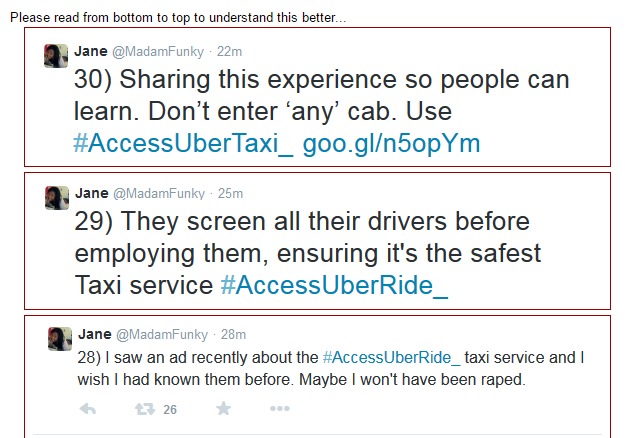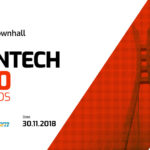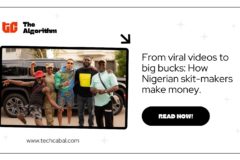With brands on social media, things can go very right. Or very wrong. Like today with Uber and Access Bank.
Uber for its part can’t seem to catch a break of late. The $40 billion dollar startup is beset on all sides by critical media, angry taxi drivers and snappy regulators. Unfortunately, when it rains, it pours. This week, the startup was in the news (again) for all the wrong reasons. An Uber driver was reported to have raped a woman passenger in New Delhi, causing the city to suspend the service, and sparking off a global conversation in technology and business media about just how well Uber vets its drivers before clearing them to operate on the service.
Ordinarily, none of the global bad belle with Uber would concern people in Lagos. But then, this had to happen. A few hours ago, Linda Ikeji posted the tweets of one @MadamFunky who tweeted a horrific story about how she got raped in a Lagos taxi. At the end of most of the tweets, this @MadamFunky took care to append the hashtag “accessuberide_”. Her concluding tweets were a recommendation to use Uber, because they vet their drivers beforehand.
I physically facepalmed when I saw this. Not with all the stuff going on in India. Double wahala for Uber.
And as it turns out, Access Bank has been promoting Uber to its customers with the same hashtag on Twitter. Access Bank has issued a statement declaring that it is not affiliated with @MadamFunky, and that it is committed to supporting women in all spheres of life.
This individual is in no way affiliated to our brand. We apologise for any distress this may have caused. #AccessUberRide_
— Access Bank Plc (@myaccessbank) December 12, 2014
MadamFunky must have realised how bone-headed this charade was, because she has deleted the tweets. But Linda Ikeji is a deft screengrabber, and the public record of this gaffe in a gaffe, in a gaffe (inceptogaffe) is indelible.
MadamFunky would later tweet that she simply “saw the service and thought people could use it”. To which most people would reply “story for the gods”.
Wondafool. "@MadamFunky: Rape is not something to be joked with. I have deleted. Did this actually happen? Well, I have moved on."
— Written By (@DamiElebe) December 12, 2014
Is it possible to make up this sort of horrific rape saga, complete with advertising plug? Did this story ever happen? Is Madam Funky even a real person?
I have a theory. Access Bank and Uber have just been rather unfortunate to be collateral damage in cheap Twitter marketing gone horrendously wrong.
It is very unlikely that any agency in their right minds would approve of the use of such a repugnant strategem to promote the services of either company. However, agencies tend to outsource certain aspects of their campaigns, and it is very likely that one of the micro-contracts ended up with one of the cheap Twitter marketers who use any means necessary to make the their campaigns trend. This includes asking risque questions, cracking jokes, and generally doing anything that is sure to get attention and retweets. And none of these need to be relevant to to the subject of the campaign. All that is required is that it trend.
We have previously explained this phenomenon and its rather elaborate ring of perpetrators whom Muyiwa Matuluko dubbed the pirates of Nigerian Twitter.
An excerpt:
They go by many titles: Publicist; Online Promoter; Hypeman and – my personal favourite – Trendstarter. They’re not difficult to find on Twitter; a simple search with the above keywords will take you to them. You often don’t have to go looking for them – they’ll always “nff, kfb” their way into your mentions, usually spotting eye-catching avatars, if you know what I mean. It comes as no surprise that their followers are usually in excess of tens of thousands.
Services offered by these guys range from sponsored tweets to rapidly increasing your (real) follower count. But nothing they do amazes me more than their trend starting services. These guys have somehow managed to circumvent Twitter’s trending algorithms with 99.999% success rate. The average trendstarter is involved in making at least 3 trending topics on Nigerian Twitter a day. They’re that good.
@myaccessbank you really gotta stop paying children to run promos for you, they will only ruin your brand!
— Fans Africa (@Fans_Africa) December 12, 2014
Usually, the content of the tweets are at best benign, and at worst, annoying in their irrelevance. Many big Nigerian brands have employed this technique, or at least had it employed for them, with no mishap. But it in this case, it seems Madam Funky, whoever they are, decided to switch things up, get creative. See how that worked out. And this for a campaign that already officially ended.
@segebee I am 100% certain the brands did not appove. It is some cheapstake PR company that must have done it. @MrBankole @Uber @MadamFunky
— Oo Nwoye (@OoTheNigerian) December 12, 2014
Uber’s problems are their problems. To Access Bank’s credit however, detecting and getting in front of the issue it early has contained the fallout considerably. As much as this is a lesson in the need to avoid radioactive marketing, the episode is also instructive on how to contain one when it does happen. As expected, Nigerians on Twitter have moved on to the next interesting topic, or resumed their business.
The takeaway is that while it’s good that Nigerian brands are exploring the new means of engaging and serving their customers via social media, they also need to realise that unlike traditional media which they are used to, social media is not a dumb pipe, and if handled with levity, something smelly will hit the fan. A misplaced iPad can be forgiven, but a touchy subject like rape is no joke.
Photo Credit: _Gavroche_ via Compfight cc




















